Light Sleeper

BUY AT:
See more details, packaging, or compare
Synopsis
An impressive neo-noir, which sees writer/director Paul Schrader (Taxi Driver, Hardcore, Blue Collar) revisit rainswept New York, Light Sleeper tells of John LeTour (Willem Dafoe, Auto Focus), a drug dealer servicing a high-society clientele of Manhattan professionals. When his boss (Susan Sarandon, The Hunger) announces she is going straight and John encounters an old flame he still loves, his life is thrown into crisis. As he becomes involved in a police investigation surrounding a mysterious drug death, John prowls the night-time streets in search of redemption.
Picture 7/10
Paul Schrader’s Light Sleeper gets a new Blu-ray edition from Indicator, who present the film in its original aspect ratio of 1.85:1 on a dual-layer disc. The 1080p/24hz high-definition master looks to have been supplied by StudioCanal. The disc is locked to region B.
It’s an older looking master, more than likely made off of an interpositive (I don’t have any notes at the moment around the master, so I’m guessing), leading to a rather dupey look. While the image isn’t as crisp as it probably could be, it never goes all that soft and it delivers a decent level of detail throughout. Film grain is present and rendered fine enough, if a bit thick and clumpy here and there, bur I'd wouldn't call it noisy. Colours are also saturated well, serving the coloured gels director of photography Ed Lachmann’s uses in a number of scenes very well. Black levels are also strong, looking deep, crushing never being a real concern.
Indicator has also done a solid digital clean-up, taking out a number of marks and debris (you can compare to clips used in the features, which show heavier damage), though a few minor things still remain. The base master has its obvious issues, but Indicator has done everything they can to present it in the best possible way.


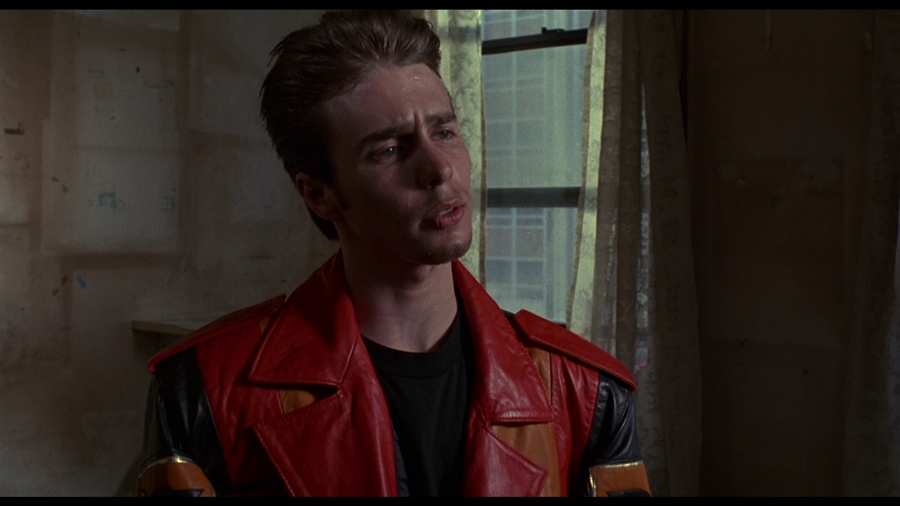
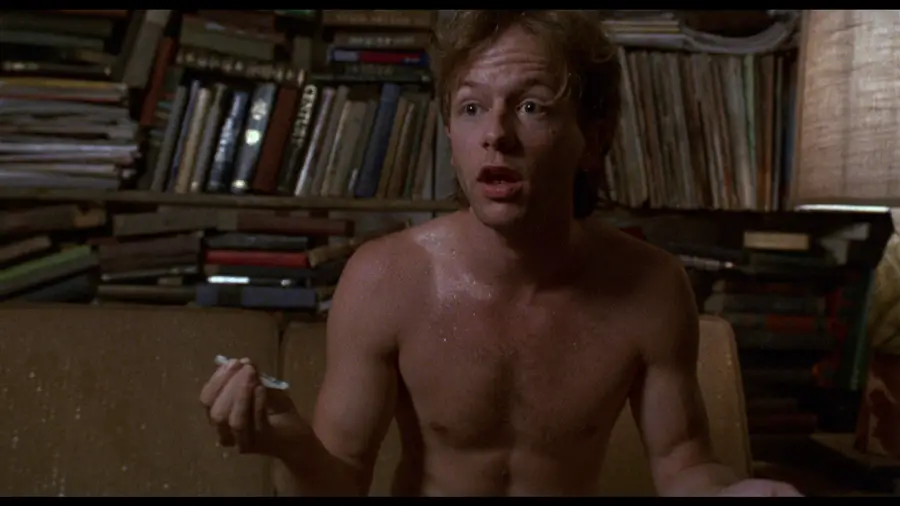

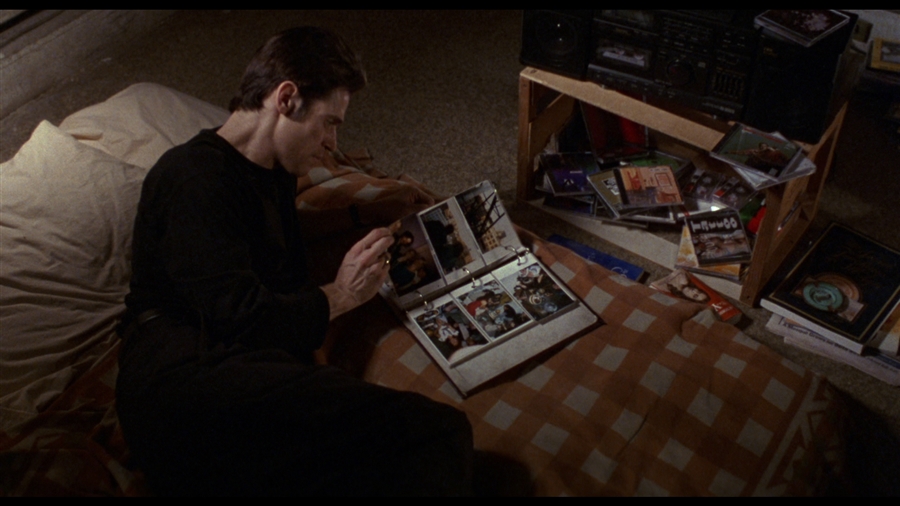

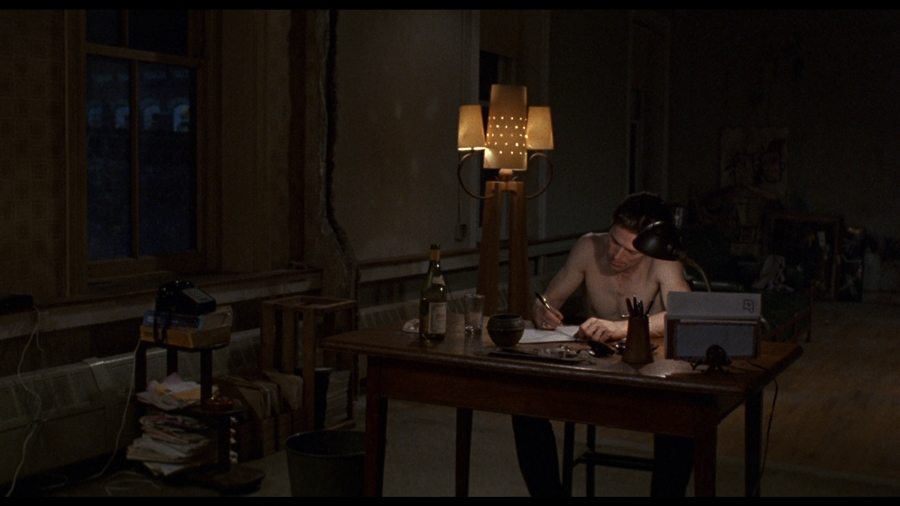


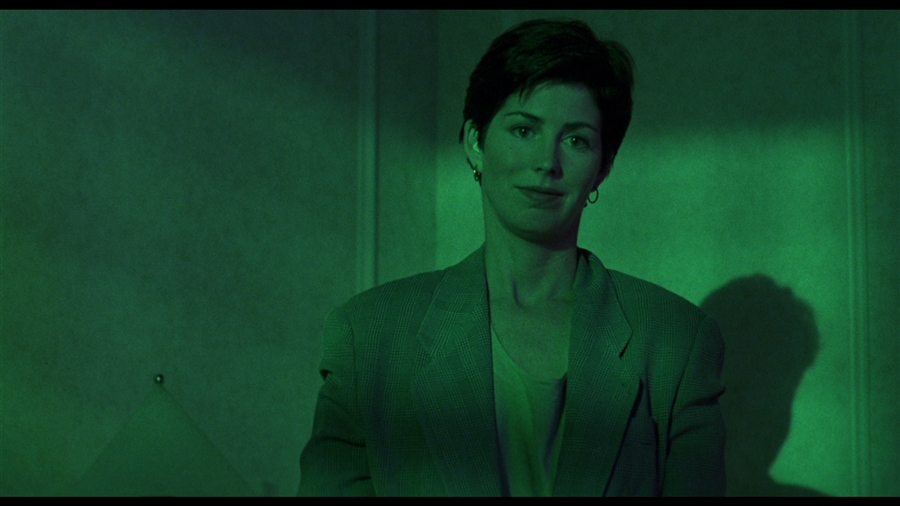


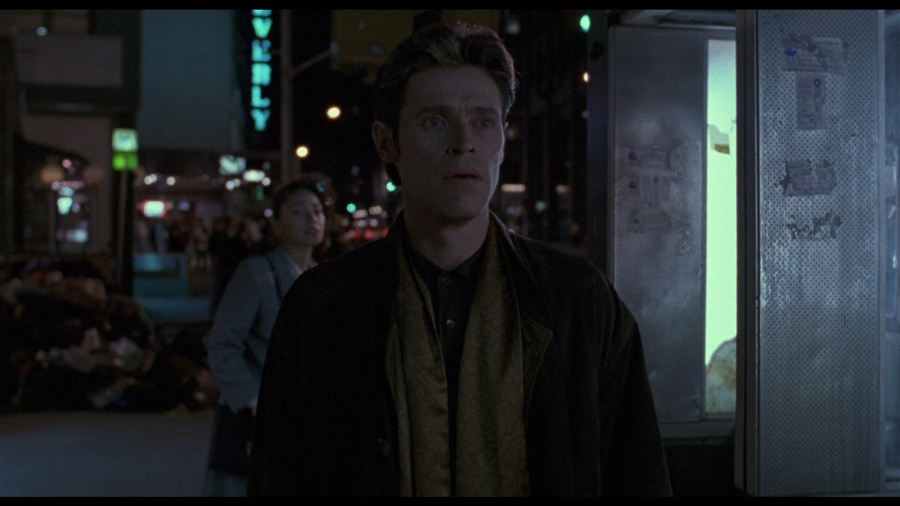
















Audio 7/10
Much to my surprise the film was mixed in monaural, and it’s presented here in lossless PCM. Despite that limitation the soundtrack manages to be robust and full, offering a shocking amount of range and fidelity. That moody Michael Been music that plays over the film still manages to pack a nice low-key punch (as do some gun shots that appear in the film), while dialogue sounds crisp and clear. I’m still a bit stunned a film from 1992 would be in mono but it still manages to deliver.
Extras 9/10
Indicator gathers together supplements available from previous editions and add a few of their own. Paul Schrader appears in a number of features himself, including an audio commentary recorded for a 2002 UK DVD edition, a new 18-minute interview recorded for this edition, and then footage of him and cinematographer Ed Lachman taken during a Q&A at the Brooklyn Academy of Music in New York. Between the three Schrader can repeat himself on a few topics, like the story behind the film’s music by Michael Been (Schrader had intended to use five songs by Bob Dylan), details around the film’s photography (Lachman’s love of gels and Schrader’s desire to limit them), and how the character here is another iteration of the same one that appeared in Taxi Driver and American Gigolo.
Weeding through that, though, there is still a lot of unique material found in each, so all of them are worthwhile. For the commentary Schrader is far more technical and analytical of the film, diving into details behind specific sequences leading him to talk about the visual and narrative devices he used to move the story or draw the attention of the viewer, while also dissecting the film’s climax (which he feels doesn’t entirely work, though that may be because of one particular criticism he read). He also shares plenty of little details, like why David Spade appears in one scene, or the story behind a window that breaks during one sequence.
In the new interview he talks a little more around how he had to put his own money into the film and also reflects in the current state of the film industry and what that means for filmmakers like him, while the Q&A features him and Lachman discussing the film’s look and the unique lighting of New York (which is, coincidently enough, also mentioned on one of the commentaries found on Arrow’s 4K disc for King of New York, which I’m currently going through). Again, a handful of stuff is repeated through all three things but a bulk of the material is unique in each. Through them Schrader (and Lachman to a small extent) cover a great level of detail around the technical and structural points of the film.
(As a note, Indicator provides a notice explaining that the commentary can be out of synch and it's related to them not having access to the original recordings. I assume it has something to do with the PAL speed-up for the DVD but I’m not entirely sure. To be honest nothing much stuck out, though I did listen to the track more in the background and wasn’t watching the screen the entire time.)
Also carried over from the same 2002 DVD that Schrader’s commentary comes from is a 17-minute select-scene track featuring actors Willem Dafoe and Susan Sarandon (recorded separately), edited over excerpts from the film. The two talk about their characters and how they ended up being cast, Dafoe getting into the research he did. That research included following an actual dealer around, who—we learn from the Schrader Q&A—was Schrader’s actual dealer at the time. Outside of the film’s climax and ending the track isn’t scene specific.
Indicator also includes 66-minutes’ worth of audio from a Guardian interview with actor Willem Dafoe, recorded in 1998, which is presented as an alternate track over the film. It’s a great interview featuring a very open and fun Dafoe, sharing his thoughts on acting (whether it be in film or on stage) and going over a number of his roles at that point, though I think the interview is based around a screening of one of his more recent films at the time, Victory. He talks about Light Sleeper and Last Temptation of Christ, and even takes joy in talking about playing the villain in films, bringing up Speed 2. He’s asked point blank about why he did Body of Evidence, and from his response it sounds as though the script and the final product were completely different (he saw it as a courtroom drama with gender roles reversed, but it was later pushed as an erotic thriller). And in a moment that dates it, he's asked whether American Psycho is still happening (this would have been around the time Leonardo DiCaprio dropped out) and amusingly he must check with his agent to confirm it. My favourite section, though, ends up being around Dafoe talking about the nature of celebrity and the effect that can have on acting: he points out you need it if you want a successful career, but at the same time it can impact your work in a number of ways. One of the better Guardian interviews I’ve yet come across. After the audio ends the film's soundtrack resumes.
Filmmaker and critic Mark Cousins then provides a surreal little 11-minute video entitled Dear Paul Schrader, Thank You for ‘Light Sleeper,’ and it's the feature of late that can take the award for being the most rooted in the era of COVID lockdowns. The program has Cousins recording, in close-up, various items in his office and around his flat (with the film and Schrader related things playing on screens in the background) all while reading aloud (in voice-over) a letter he had written to Schrader (a letter you get to see briefly in one shot). It has that dreamy, stream-of-conscience quality to it that is similar to his other work (like The Story of Film) and I was pretty transfixed by it, Cousins recounting how he first fell in love with the film, and discovering he still loves the film after a recent revisit. He then explains why he loves the film so much, asking rhetorical questions of the director during the process. Amusingly, he asks the exact same question about a scene around the protagonist’s notebook that Dafoe apparently asked Schrader, which the director mentions in the commentary. I’m guessing Cousins hasn’t listened to the track yet as Schrader didn’t really have an answer. At any rate, it’s an effective video essay about the film’s heart and its dreamy qualities, and I love that it feels so of the moment.
The disc then closes with the film’s theatrical trailer (seeing the Seven Arts logo was kind of trippy) and a small image gallery that features a number of photos, scans of the press book, and then a number of posters. The Limited Edition also comes with a booklet featuring essays and other articles, though I’m working off of a check disc and have not yet received a copy of the booklet.
Out of Schrader’s films this one has really fallen under the radar, but Indicator goes all out with the supplementary material, lavishing the film with the attention it most certainly deserves.
Closing
The film would certainly benefit from a new restoration as this one does come off very dated, but it’s fine enough with the supplementary material more than making up for it. Very highly recommended.
BUY AT:


